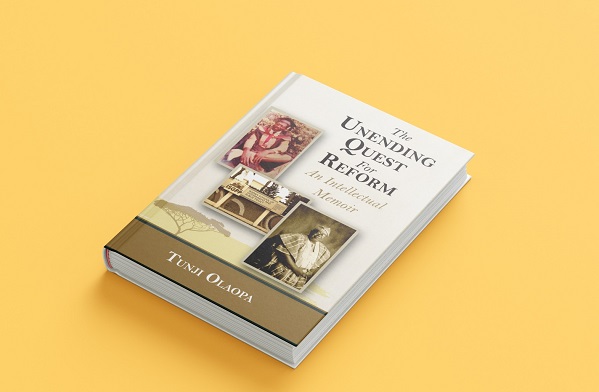As technology advances, we are witnessing the rise of AI and green tech. These two fields have enormous potential for transforming our world and creating a more sustainable future. Barack Obama touts that “The Recovery Act, which helped saved the economy and prevented us going into the Great Depression, was the largest investment in green technology, the largest investment in education. We rebuilt roads and bridges.” From reducing pollution to increasing productivity, AI and green tech offer us myriads of opportunities to protect our planet while improving our lives. In this article, we will explore the future of AI and green tech around the world, including how these technologies will help save the environment and drive investment.
Artificial intelligence (AI) has become one of the most transformative technologies in recent years. It refers to computer systems that perform tasks typically requiring human intelligence, such as visual perception, speech recognition, decision-making, and language translation. The rise of AI (thinking machines) was made possible by advances in computing power, big data, and machine learning algorithms. Today, AI is used across various industries, from healthcare to education to finance. In fact, according to a report by McKinsey Global Institute, AI could contribute up to $13 trillion to the global economy by 2030. And every serious leader should seek to play in that space.
Moreover, the benefits of AI are numerous: it can help businesses improve efficiency and productivity while reducing costs; it can assist doctors in diagnosing diseases more accurately; it can even help predict natural disasters before they happen based on available data. However, there are also concerns about the impact of AI on jobs and society. Some experts argue that automation will lead to significant job losses in certain sectors, while others worry about privacy violations or bias within these systems. Despite these concerns, there is no denying that artificial intelligence will continue shaping our world for years to come – especially when coupled with another rising technology: green tech.
Green tech, also known as environmental technology, refers to technologies designed to reduce our environmental impact and promote sustainability. It encompasses a wide range of industries and products, including renewable energy sources such as solar, wind, and hydropower, green building materials and practices, and waste reduction technologies like recycling and composting systems. One example of green tech is electric vehicles which use battery or fuel cell technology instead of fossil fuels for powering cars. Another example is smart grids, which employ advanced sensors to manage electricity usage in homes and businesses efficiently.
Advertisement
In addition to being environmentally friendly, many green tech solutions can be cost-effective in the long run. For instance, installing solar panels may seem expensive initially, but they can pay for themselves over time by reducing energy bills. Green tech has been gaining momentum globally, with countries like China leading in investments in this sector, while Nigeria has seen an increase in startups focused on sustainable solutions. China spent $546 billion (about half of the world’s low carbon spend) in 2022 on investments that included solar and wind energy, electric vehicles, and batteries. That is nearly four times the U.S. investments totaling $141 billion. The European Union was second to China with $180 billion in clean energy investments (according to a recent BloombergNEF analysis). With increasing global awareness about climate change impacts, there is a growing demand for innovative green tech solutions to help us live sustainably without compromising future generations’ needs.
Furthermore, this emerging market has opened up new opportunities worldwide for businesses and investors passionate about sustainability. One of the promising areas in green tech is renewable energy. With increasing global demand for electricity, there is an opportunity to invest in solar, wind, and geothermal power systems. Renewable energy sources can help reduce greenhouse gas emissions while providing reliable and affordable energy solutions. Another area of investment interest is sustainable transportation. The world’s population continues to grow at an unprecedented rate (0.9% annual change, 2021), resulting in increased carbon emissions from transportation. Green tech innovators have responded with new ways of powering vehicles with zero emissions, like electric cars or hydrogen fuel cells.
Also, water conservation technologies offer another exciting investment opportunity within green tech, especially in areas prone to droughts or water scarcity where water management could be improved through better handling techniques using innovative water-saving devices. Waste management presents additional opportunities by transforming trash into treasure (in the circular economy) through recycling projects leading to efficient use of resources, thereby reducing pollution levels on Earth.
Advertisement
Additionally, investors should consider these various aspects when looking for investment opportunities within this growing industry because they will contribute significantly towards achieving environmental sustainability (in humanity’s future) and provide financial returns over time.
The future of AI and green tech is an exciting prospect as it offers a way to tackle urgent environmental challenges while improving productivity, efficiency, and sustainability. In the next few years, AI-powered solutions will be used extensively in various industries, such as energy, transportation, agriculture, and manufacturing, to reduce waste, emissions, and resource consumption. Serious Government leaders and Startups need to engage this space to stay relevant.
Also, AI-based technologies such as predictive analytics and IoT sensors can help optimize energy usage by predicting demand patterns more accurately. For instance, smart grids powered by AI algorithms can identify power outages faster or enable remote management of renewable sources like solar panels to ensure an uninterrupted power supply. In addition to optimizing energy use, AI can help improve waste management practices. Smart sorting mechanisms that use machine learning algorithms to classify different types of materials within seconds can significantly increase recycling rates while reducing Earth contamination levels.
Moreover, green tech businesses are attracting more investment from venture capitalists and grant-making agencies worldwide due to their potential for long-term growth prospects. Countries like Nigeria also invest heavily in renewable energy projects that leverage new technologies such as blockchain-enabled microgrids or innovative financing models that stimulate investments in clean energy projects. As we look forward into the future, where climate change poses an existential threat globally, leveraging technological innovation like AI could undoubtedly lead us toward a more sustainable path for humanity’s well-being.
Advertisement
AI is a powerful tool that can help save the planet. One of the ways AI can achieve this goal is by improving energy efficiency. Using machine learning algorithms, buildings and factories can optimize energy usage patterns and reduce waste. Another way AI can contribute to environmental sustainability is through precision agriculture. Farmers can use sensors and other technologies to gather data on soil quality, weather conditions, and crop growth patterns. Machine learning algorithms can then analyze this data to provide insights on maximizing yields while minimizing resource consumption.
AI-powered transportation systems are also being developed to reduce pollution caused by vehicles. Self-driving cars are expected to be more efficient than human-driven ones since they follow optimal routes and avoid unnecessary idling time. AI systems are being used for environmental monitoring purposes such as tracking deforestation, water quality, air pollution levels, etc. These monitoring systems use satellite imagery combined with deep learning techniques to enable real-time detection of changes in natural resources.
AI has already shown its potential to help us address some of our most pressing environmental challenges. With further investment in green technology development worldwide, we expect even better outcomes in the future! John McCain said, “Suppose that climate change is not real and all we do is adopt green technologies, which our economy and our technology are perfectly capable of. Then all we have done is given our kids a cleaner world.” The future of AI and green tech is bright. Integrating AI into green technology has opened up new frontiers in sustainability, productivity, and investment opportunities across the globe. Countries are making significant strides in implementing environmentally friendly practices through AI.
To fully harness the potential of AI in green tech, there needs to be more investment in research and development to create innovative solutions that can tackle pollution and climate change effectively. Governments should also provide incentives for companies investing in sustainable technologies.
Advertisement
As individuals, we can play our part by embracing eco-friendly lifestyles, such as using renewable energy sources like solar power and reducing carbon footprints. Adopting these practices will help save our planet and contribute towards a healthier world for generations to come. It is high time we took bold steps toward building a greener future with AI as an ally rather than an adversary. Let us all work together towards creating a sustainable world where technology complements nature instead of destroying it!
Thank you for the great investment in time. Please follow my Medium: https://medium.com/@roariyo (for more of my curated thoughts) and LinkedIn: https://www.linkedin.com/in/olufemi-ariyo-923ba6130/ or send an email to [email protected]
Advertisement
Add a comment






